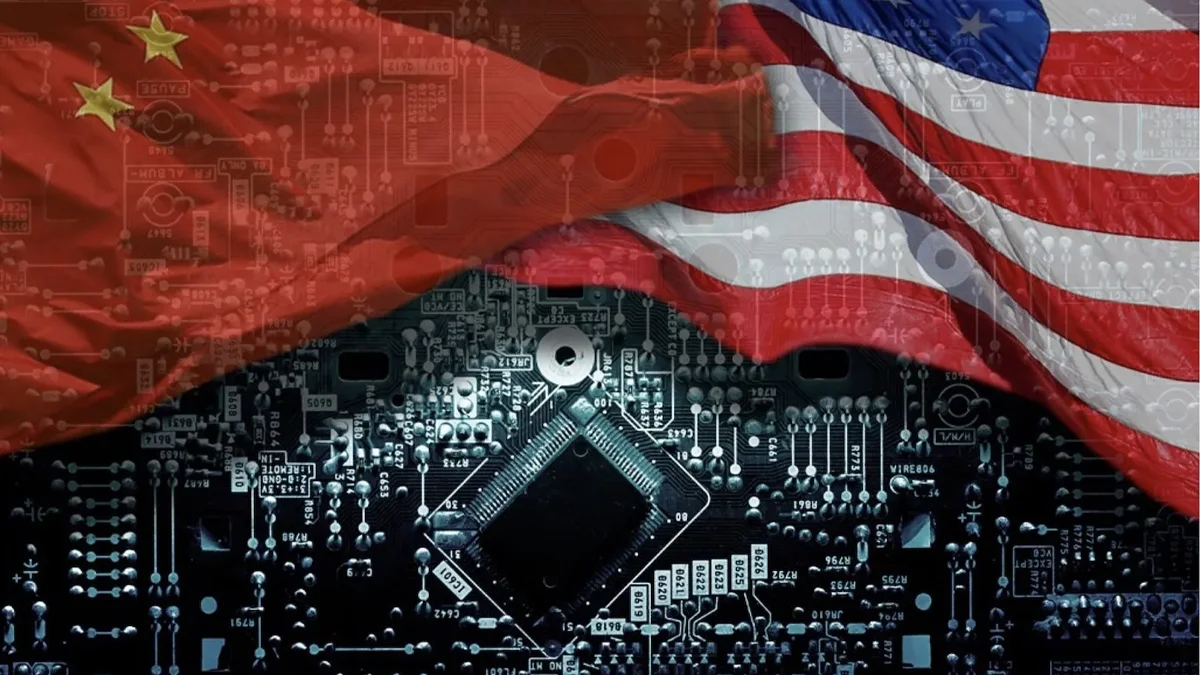Necessary Always Active
Necessary cookies are required to enable the basic features of this site, such as providing secure log-in or adjusting your consent preferences. These cookies do not store any personally identifiable data.
|
||||||
|
||||||
|
||||||
|

Stocks of global tech and chip companies surged on May 12 following the US China trade tariff pause, CNBC reported. For over a month now, trade tensions between the US and China have affected stocks of chip and smartphone manufacturing companies globally.
The tensions also threatened to disrupt global supply chains and affected some of the largest businesses.
The US-China temporary deal represents a de-escalation of the trade tensions between the two largest economies. In the deal, both countries agreed to reduce import tariffs by 115%. This reduction means that US levies on Chinese imports drops to 30% while China’s levies on US imports drop to 10%.
Some analysts argue that the 30% US tariff is still high, but much more manageable. The tariff changes are set to commence on May 14 and will remain in place for 90 days. This duration will allow the two countries to negotiate a substantive deal.
White House Press Secretary Karoline Leavitt termed the deal an extraordinary first step in the right direction. According to Leavitt, China agreed to continue discussions on opening its market more to US products while discussing the fentanyl issue whose impacts the US is seriously concerned about.
“President Trump will continue negotiations with China, so we can hopefully, inevitably get to a fair and comprehensive, big trade deal,” Leavitt added.
Chinese exporters also expressed optimism about the new deal.
“I’m glad sanity is back in style. President Trump is going to be here for the next 3.5 years. I don’t think this is going to be the end of it, not by a long shot,” Chinese exporter Tat Kei said.
Kei exports personal care products to the US. His Shenzhen-based factory has a woanarkforce of 200 people.
Talks between the US and China brought relief to investors and caused tech stocks to soar following the trade deal. Nvidia stocks jumped 4% in premarket trading on May 12. The AI chip maker is still facing multiple restrictions on its semiconductors exports to China. AMD, Qualcomm, and Broadcom stocks also responded positively to the US China tariff agreement, with each soaring 5%.
US stocks of the world’s biggest contract chip maker, Taiwan Semiconductor Manufacturing Company, surged by 4% in premarket trading. In Europe, ASML stocks gained 4.5% in early morning trading. The Dutch company supplies important machinery that chip makers need to manufacture advanced semiconductors.
Last month, President Donald Trump exempted semiconductors and selected electronics from tariffs. However, the US has indicated that this exemption is short-term and that there is a chance that these products may still be subjected to special levies.
Since Trump announced liberation day tariffs, investors have expressed concern over the impact of the levies on key tech stocks, particularly for Amazon and Apple that are heavily dependent on China. Shares for these companies have taken a serious hit this year.
“With US-China clearly on an accelerated path for a broader deal, we believe new highs for the market and tech stocks are now on the table in 2025 as investors will likely focus on the next steps in these trade discussions which will happen over the coming months. This morning is a huge win for the bulls and a best case scenario post this weekend in our view,” Global Head of Tech Research at Wedbush Securities Daniel Ives said.
The US-China deal saw Amazon shares gain 8% on May 12. Most sellers on the ecommerce giant rely on products produced in China. Apple shares also gained 7%. The iPhone maker manufactures 90% of its smartphones in China. Earlier this month, the US tech giant said reciprocal tariffs would increase its production costs by up to $900 million this quarter.
Stocks of Chinese e-commerce giants also rose in US May 12 trading. Share prices of JD.com, Alibaba, and Baidu all rallied higher following the trade deal.